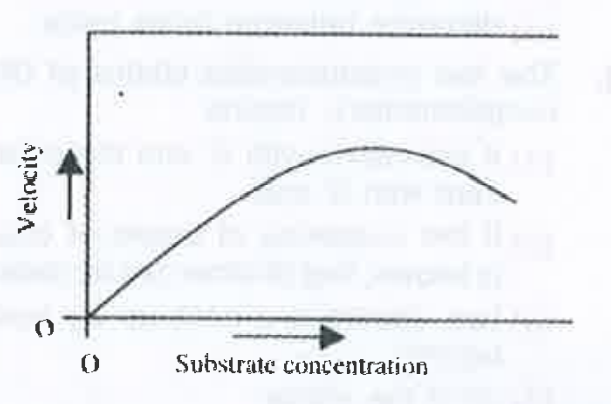Enzymes enhance the rate of reaction by
Combining with product
Forming reactant - product complex
Changing equilibrium of reaction
Lowering activation energy.
The correct Answer is:D
Step by step video & image solution for Enzymes enhance the rate of reaction by by Biology experts to help you in doubts & scoring excellent marks in Class 12 exams.
Updated on:21/07/2023Topper's Solved these Questions
- MOLECULES OF THE CELLBook:DINESH PUBLICATION ENGLISHChapter:MOLECULES OF THE CELLExercise:CYG
Explore 43 Videos
- MOLECULES OF THE CELLBook:DINESH PUBLICATION ENGLISHChapter:MOLECULES OF THE CELLExercise:CYG
Explore 43 Videos
- MICROBES IN HUMAN WELFAREBook:DINESH PUBLICATION ENGLISHChapter:MICROBES IN HUMAN WELFAREExercise:Brain Teasers-VIII
Explore 60 Videos
- MOLLUSCABook:DINESH PUBLICATION ENGLISHChapter:MOLLUSCAExercise:CYG
Explore 10 Videos
Similar Questions
How does a solid catalyst enhance the rate of combination of gaseous molecules?
View SolutionStatement-1 : Electrons releasing group at para position of a migrating aryl group enhances. The rate of reaction in Hofmann's preparation of primary amine from amides.
Statement-2:
View SolutionWhen a biochemical reaction is carried out in laboratory from outside of human body in the absence of enzyme, the rate of reaction obtained is 10−6 times, then activation energy of the reaction in the presence of enzyme is
(a)6RT
(b)P is required
(c)Different forms Ea obtained in laboratory
(d)cannot say any things
View SolutionThe rate constant of a reaction has same units as the rate of reaction. The reaction is of:
View SolutionWhat does the graph indicate ?
The graph given below shows the effect of substrate concentration on the rate of reaction of the enzyme green- gram-phos-phatase.

View SolutionIn the reaction A+B→C+D, the concentration of A and B are equal and the rate of the reaction is rate =k[A][B]. The integrated rate equation for this reaction is
View SolutionBy the action of enzymes, the rate of biochemical reaction
View SolutionEnzymes increase rate of chemical reaction by
View SolutionIncrease in concentration of substrate in case of competitive inhibition results in
(a) No change in rate of reaction
(b) Increase in rate of reaction to original Vmax
(c) Decrease in Km value of the enzyme
(d) Both (b) & (c)
View SolutionThe rate constant of a reaction is equal to the rate of reaction when
View Solution